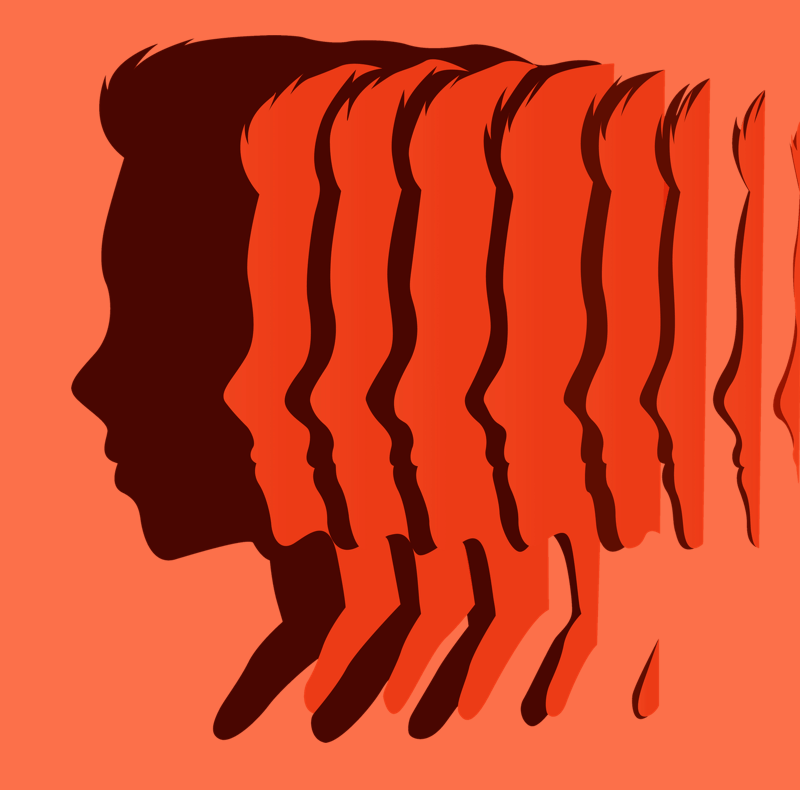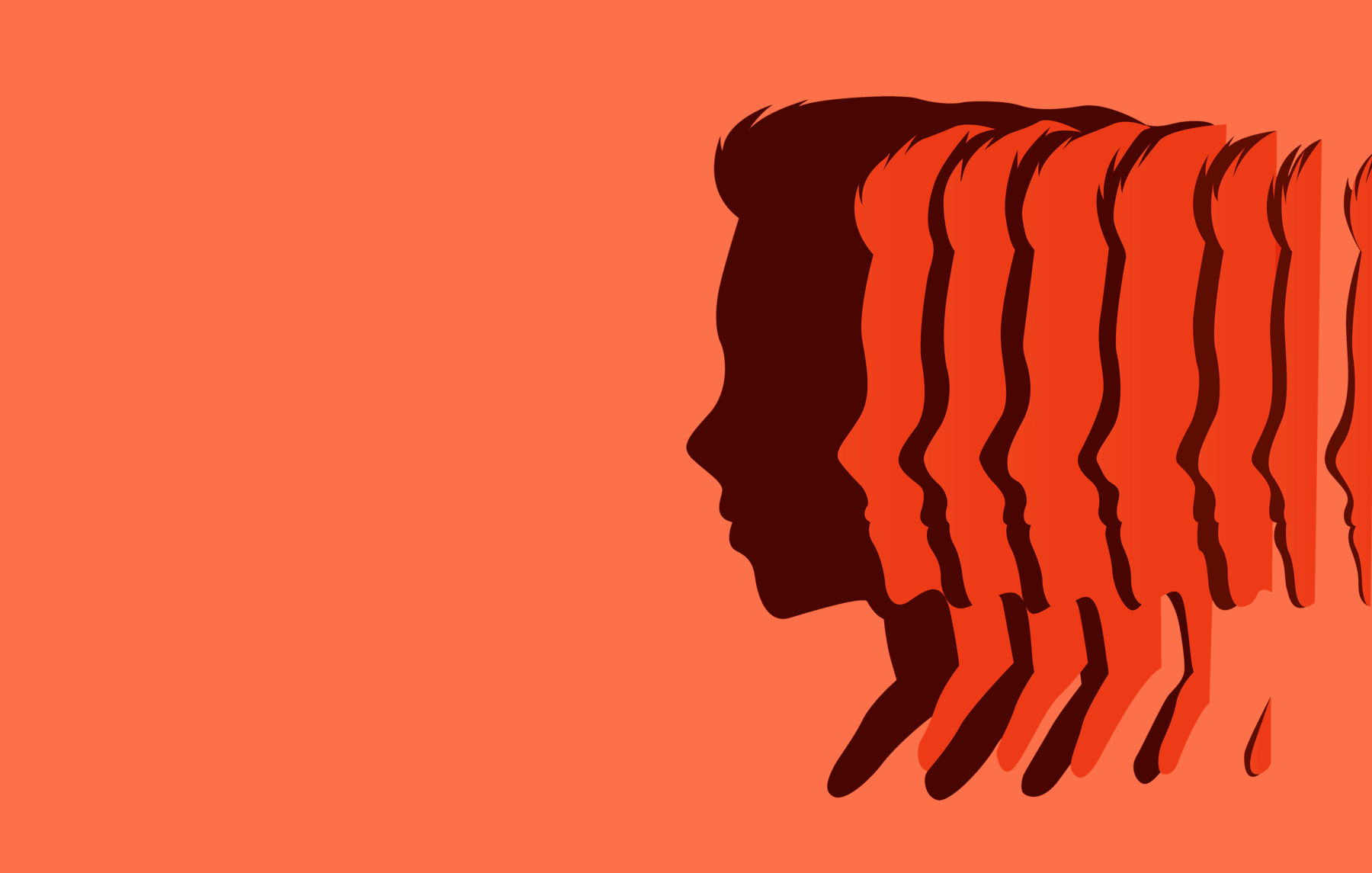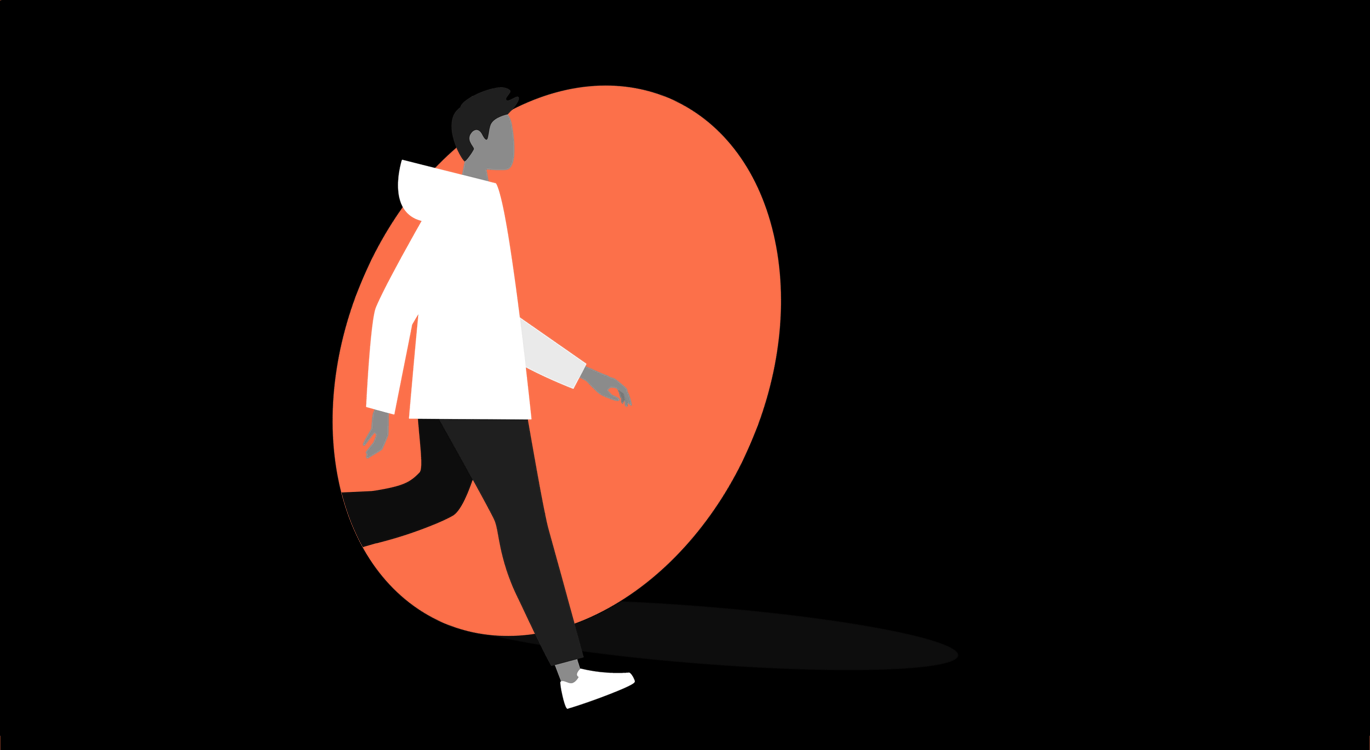“
There’s a purveying attitude that personalities are hard-wired and immovable ... but we know that’s bullshit.”
Yes, you can be a different guy after the pandemic (or anytime)


Yes, you can be a different guy after the pandemic (or anytime). But you’ll have to do some digging.

One of my clients was a creative director for a hilarious and touching Extra gum spot that premiered online a few weeks ago. In the short film, a city wakes up (and makes out) after a long time spent indoors. The tagline: We could all use a fresh start.
As vaccination rates rise and cities and businesses reopen, many of us are thinking about that proverbial fresh start: What will it look like? What will I do? Can I resume my “normal” activities? Is my body, psyche and wardrobe prepared for re-entry into society? And then there's perhaps the juiciest inquiry of all: Will I—after over a year in quarantine—emerge as a different man altogether?
In our culture, there's a purveying attitude that personalities are hard wired and immovable, but in the coaching world, we know that's bullshit. Personalities are fluid. We see them shift every day. The clients who arrive in our practices, arms crossed with skeptical looks on their faces, tell us: I am who I am, only to become almost unrecognizable as their attitudes towards themselves and others change. And their behaviors follow.
One client who I started working with last year told me he was lazy. He said he'd always taken the easiest route available to him, and as a result, knew he'd never reach his dreams. In a span of several months, I watched this same guy quit his job, design a gorgeous new website for his freelance business, and run a marathon. Eventually I asked him: “Do you still think you're lazy?” We had a good laugh over that.
As Mark Manson writes: “Changing your life starts with changing the way you see everything in your life.” And great coaches ask the questions that probe us to go deeper than we've ever gone into the why. This leads to awareness. Prior to having an awareness, we're operating unconsciously, on autopilot. Once we have an awareness, though, we have a choice. Choice is freedom from our personalities.
“
There’s a purveying attitude that personalities are hard-wired and immovable ... but we know that’s bullshit.”
I'll illustrate further how core aspects of our personalities can transform with a quick story from my own life:
When I was six years old, my very middle class father married a very wealthy woman. Almost overnight, I was transported into a foreign world of country clubs, summer homes and seersucker. I felt squirrel-y in these new, fancy settings—way out of my league—and my stepmother's Miranda Priestly temperament didn't exactly help to assuage my discomfort.
Because my stepmother's approval seemed so lofty and out of reach, I unconsciously created a sub-personality in reaction to that feeling of rejection. In my twenties, I moved to Manhattan and became a bespoke suit wearing, champagne swilling fashion journalist. Let's call that aspect of my personality “Fancy Sean.” I didn't make the chilling discovery that I'd unconsciously created “Fancy Sean” to try to win my stepmother's love until many years later. “You really were doing some high brow stuff,” she quipped, commenting on my years writing for fashion magazines and flying on private jets. And I was surprised at the anger that rushed up inside me. What I wanted to tell her was: I did this for you!
In Bill Plotkin's book Wild Mind: A Field Guide to the Human Psyche, he writes about how all of us create sub-personalities in our youth. He calls them “loyal soldiers.” The mission of loyal soldiers are to develop childhood survival strategies that minimize the chance of additional woundings or abandonments. “Fancy Sean” was one of my loyal soldiers. And, once I had the awareness of his origins, I was able to process any unresolved emotions I felt, and integrate him into the rest of my personality. He no longer drove the bus, which has made my life a lot saner (and my credit card statements much lower). Although, I'll admit, I do sometimes miss the suits.


This kind of shift can happen for anyone. And thanks to fifteen months indoors, many of us are more aware than ever of the, er, less than helpful aspects of our personalities.
1
All of us have painful memories that we go back to—stuff we endured that still stings. And if you're like me, a year and a half in quarantine dug up your deepest dirt. Use it as fuel for identifying the why of key personality traits. Maybe you grew up a poor kid in an affluent town, and felt you needed to overcompensate for it, like I did. Maybe your family always said you'd never amount to anything, and you took it on, becoming an underachiever (or perhaps you went the other way and burned yourself out trying to prove them wrong).
An old friend of mine was a model at a young age, and as a result, developed a series of eating disorders. He felt if his body wasn't lean and muscular, he had no self worth. Identifying this origin story was a huge part of his process towards releasing his meticulous obsession with eating clean and working out. Remember, our soldiers are the compensatory aspects of our personalities we created to survive. Our “psuedo” selves. And the beauty of them is that, since we created them, we can dismantle them.
2
With awareness of the compensatory aspects of our personalities, we can begin to actively shift our behaviors. But unless we have a positive vision for the person we want to be, we won't get very far.
An activity I have my clients do is identifying a handful of people in the world who they admire, and why. From this exercise, we can create a list of traits the client wants to embody. (Some of the most common include: bold, creative, resilient, vulnerable, wise and adventurous). I encourage them to take a moment to experience what it would feel like to actively live each of these ideals they identify, and we then create action steps they can take each day to get closer to them.
The best part of this step is that the same loyal soldiers that kept us protected and safe can be re-assigned to cover a new post. For example: Promoting the soldier that made sure we stayed quiet and withdrawn as a kid to run point on our new boldness committee: posting content on social media and taking the lead in company meetings. Soldiers love new jobs!
3
Anytime we make a change we're heading into the unknown, and the unknown will produce fear. As a reset, I like to challenge guys I'm working with to do something that feels crazy and outside of their personalities. One of my clients is a fashion executive who meticulously ironed his shirts every morning. I challenged him to wear wrinkled clothes for a week, and see what happened. He was terrified, thinking everyone in the office would assume he'd lost his shit, but he told me very few co-workers noticed the change, and a few even commented on how good his “fits” looked that week.
It can be helpful to have a support system as we lean into our oldest fears. A coach, therapist, or mentor is, of course, great for this. But you don't need a professional in your corner to pull it off. One of the guys in my men's group has a group chat going with five other friends who are all holding each other to a 90 day fitness challenge. The jokes, photos and lively banter of the chain are producing unprecedented results for all of them, far superior to anything they had achieved alone. A buddy and I used to have a running joke that all you need to form an accountability team is to identify your “least fucked up friend” and recruit them to help you strive towards the person you want to be.
4
Freud said it best: “Most people do not really want freedom, because freedom involves responsibility, and most people are frightened by responsibility.” So I like to remind my clients, and anyone else doing this work that just by undertaking this journey to a new you, you're already doing what most human beings will never do. And that deserves a hearty congratulations. I'll see you on the other side.
You’ve now got a life coach at your disposal. Hit Sean up with any concern you’re currently struggling with: Trouble at work? Relationship worries, family struggles or general mental health concern? Let him help you tackle it each month in this column.
Advertisement